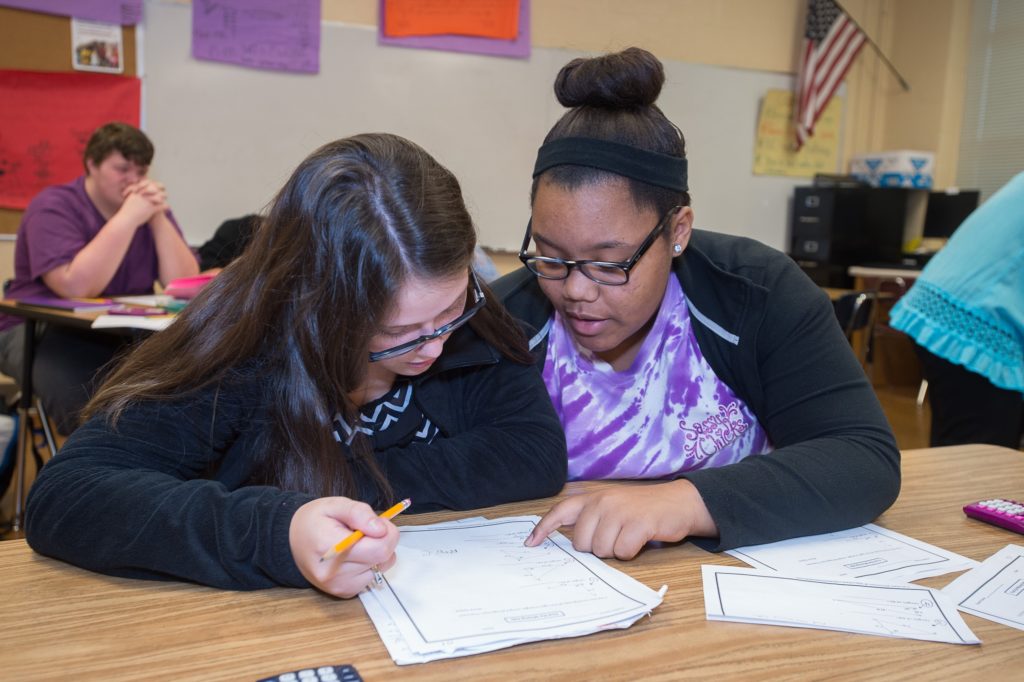The Every Student Succeeds Act (ESSA) has given states greater flexibility to use innovative approaches to improve student achievement. Now that the Tennessee Succeeds plan for ESSA has been approved, SCORE has informally heard from schools and districts about the need for support and resources to help with implementation of the strategic plan. Spotlighted here are a few national and Tennessee-specific innovations currently being implemented to address various areas of focus connected to student achievement.
School Improvement: In collaboration with Hamilton County Schools, Tennessee looked to create the first Partnership Zone between the state and the district in Chattanooga. Similar to the efforts in Springfield Massachusetts, the Partnership Zones are clusters of schools that are turned into districts within districts and are governed by local and state officials as well as allow for local governments to have flexibility and autonomy to tailor different school designs to improve their students’ needs. This version of a turnaround model has shown to be powerfully successful for students in Massachusetts. For example, Lawrence Public Schools, one of the poorest districts in the state with schools on the priority list for the past 20 years, had a 34% increase in level 1 (highest level) schools since 2012.
Chronic Absenteeism: The E3 Alliance in Central Texas is a cradle-to-career partnership that unites education, community, and business. The group launched the “Missing School Matters” campaign with 14 school districts and 36 community and business partners with a focus on improving student achievement to relieve the pressure of state budget cuts. Because 48 percent of absences were cold and flu related, they launched an in-school flu immunization campaign that gave away 6,500 free vaccinations to 56 elementary schools. In the 2016-2017 school year, the E3 Alliance scaled their efforts to 54,000 free vaccinations to students and families. So far, districts in Central Texas have saved $33 million, re-claiming over 800,000 school days.
English Learners: Newcomer Academies are a version of the school-within-school model that targets English learners. Nashville public charter schools have taken the lead creating and implementing Newcomer Academies with the goal of meeting the needs of students who are new to the United States. In 2014, Cameron College Prep, a middle school that is part of the LEAD network in Nashville, began its Newcomer Academy. The academy is taught explicitly in English to enhance students reading, writing, listening, and speaking skills. Another example is the Nashville Newcomer Academy at STEM Prep Middle School that received $700,000 to begin its program in the fall of 2017. The program’s main goal is to promote English proficiency in one-year while teaching grade-level coursework.
Early Postsecondary Opportunities (EPSOs): The Work Ethic Diploma is an initiative spearheaded by Hamblen County Schools in Tennessee. Students earn points to get the diploma by completing a variety of tasks or taking certain classes. One way students gain points is by earning an industry certification, one of the eight EPSOs. The diploma was created from conversations with local business leaders to identify what important soft skills are needed from high school graduates to be successful in particular fields. The diploma is supplementary to a regular diploma and is funded through the Labor Education Alignment Program grant provided to Hamblen, Hawkins, and Grainger Counties. The diploma measures certain criteria including attendance, behavior, grades, earning industry certifications and being drug free. Nearly 1,000 students in the three counties are on track to earn one of these diplomas, which will guarantee them an interview with one of the dozens of companies in those counties, such as GE or International Paper.

